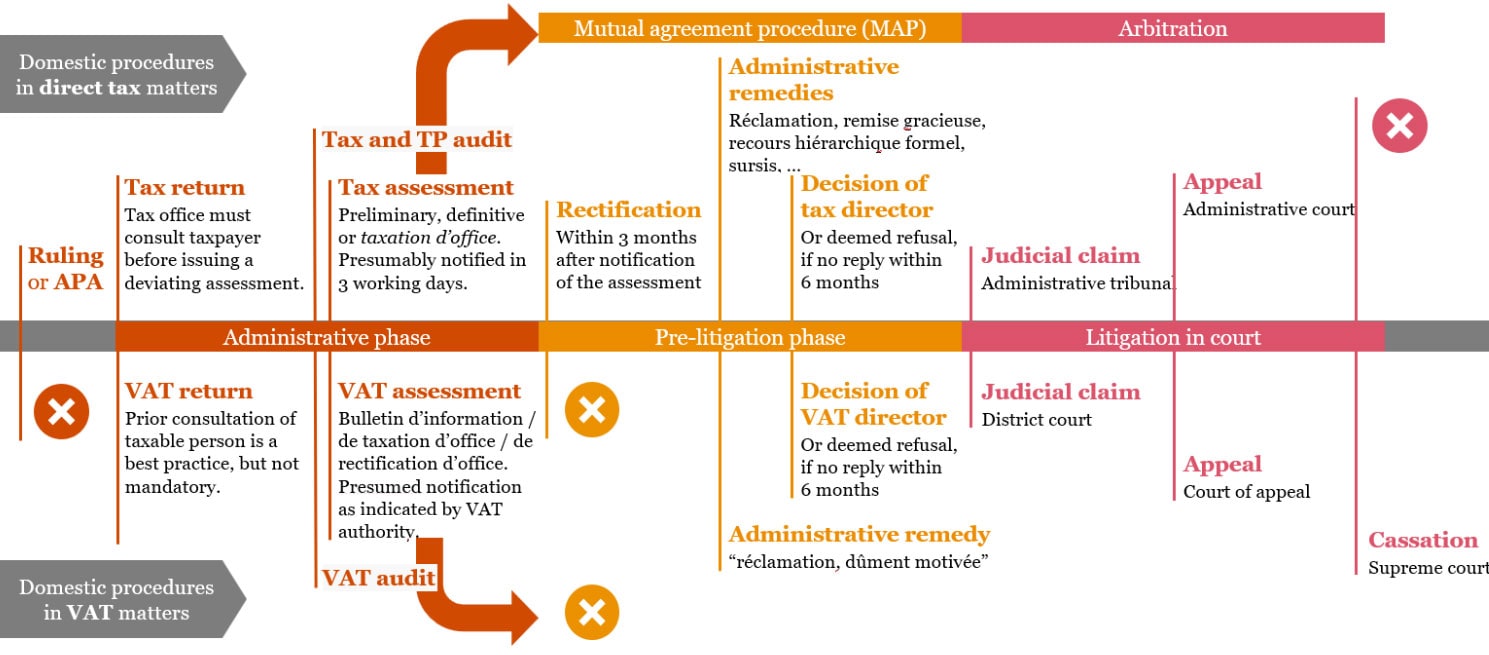Navigating tax audits can be a daunting process for businesses and individuals alike, especially in jurisdictions with complex tax systems like Luxembourg. Understanding the intricacies of the tax audit process, along with the key steps to prepare and respond effectively, is crucial for ensuring compliance and minimizing potential penalties. This article aims to provide a comprehensive guide to navigating tax audits in Luxembourg, outlining the essential procedures, potential sanctions, and effective defense strategies.
Understanding the Tax Audit Process in Luxembourg
Tax audits in Luxembourg are conducted by the Administration des Contributions Directes (ACD), the country’s tax authority. The primary objective of these audits is to ensure that taxpayers are complying with their tax obligations and accurately reporting their income and expenses. Audits can be triggered by various factors, including discrepancies in tax returns, random selection, or specific risk indicators identified by the ACD. Understanding the audit process is the first step in effectively navigating and managing it.
The audit process typically begins with a notification from the ACD, informing the taxpayer of the upcoming audit. This notification outlines the scope of the audit, the period under review, and the specific documents and information required. The taxpayer is usually given a reasonable timeframe to gather and submit the necessary documentation. It is crucial to respond promptly and cooperatively to the ACD’s requests to demonstrate transparency and good faith.
During the audit, the tax authorities will meticulously review the submitted documents, cross-checking them against the taxpayer’s filings and other available data. They may also conduct interviews and request additional information if needed. The duration of the audit can vary, depending on the complexity of the case and the responsiveness of the taxpayer. Upon completion, the ACD will issue a report detailing their findings, which may include adjustments to the taxpayer’s liabilities, penalties, and interest charges.
Key Steps to Prepare and Respond Effectively
Preparation is key to successfully navigating a tax audit in Luxembourg. The first step is to maintain accurate and comprehensive records of all financial transactions, including invoices, receipts, bank statements, and other relevant documents. Keeping organized records not only facilitates the audit process but also helps in quickly addressing any discrepancies that may arise. Regularly reviewing and reconciling accounts can also help identify potential issues before they become audit triggers.
When notified of an audit, it is essential to carefully review the ACD’s request and seek professional advice if necessary. Engaging a tax advisor or legal expert with experience in Luxembourg’s tax system can provide valuable insights and guidance throughout the audit process. They can help in interpreting the audit notice, gathering the required documents, and formulating a strategic response. Timely and accurate submission of the requested information is crucial to avoid unnecessary delays and penalties.
During the audit, maintaining open and transparent communication with the tax authorities is vital. Responding promptly to any additional requests for information and cooperating fully with the auditors can help build a positive rapport and demonstrate a willingness to comply with tax regulations. If discrepancies or errors are identified, it is important to address them proactively and provide clear explanations or corrections. In cases where the taxpayer disagrees with the audit findings, they have the right to contest the results through administrative appeals or legal proceedings.
Successfully navigating a tax audit in Luxembourg requires a thorough understanding of the audit process, diligent preparation, and effective communication with the tax authorities. By maintaining accurate records, seeking professional advice, and responding promptly to audit requests, taxpayers can significantly reduce the risk of penalties and ensure compliance with Luxembourg’s tax regulations. While the prospect of an audit may seem daunting, a proactive and cooperative approach can help mitigate potential issues and lead to a more favorable outcome.
